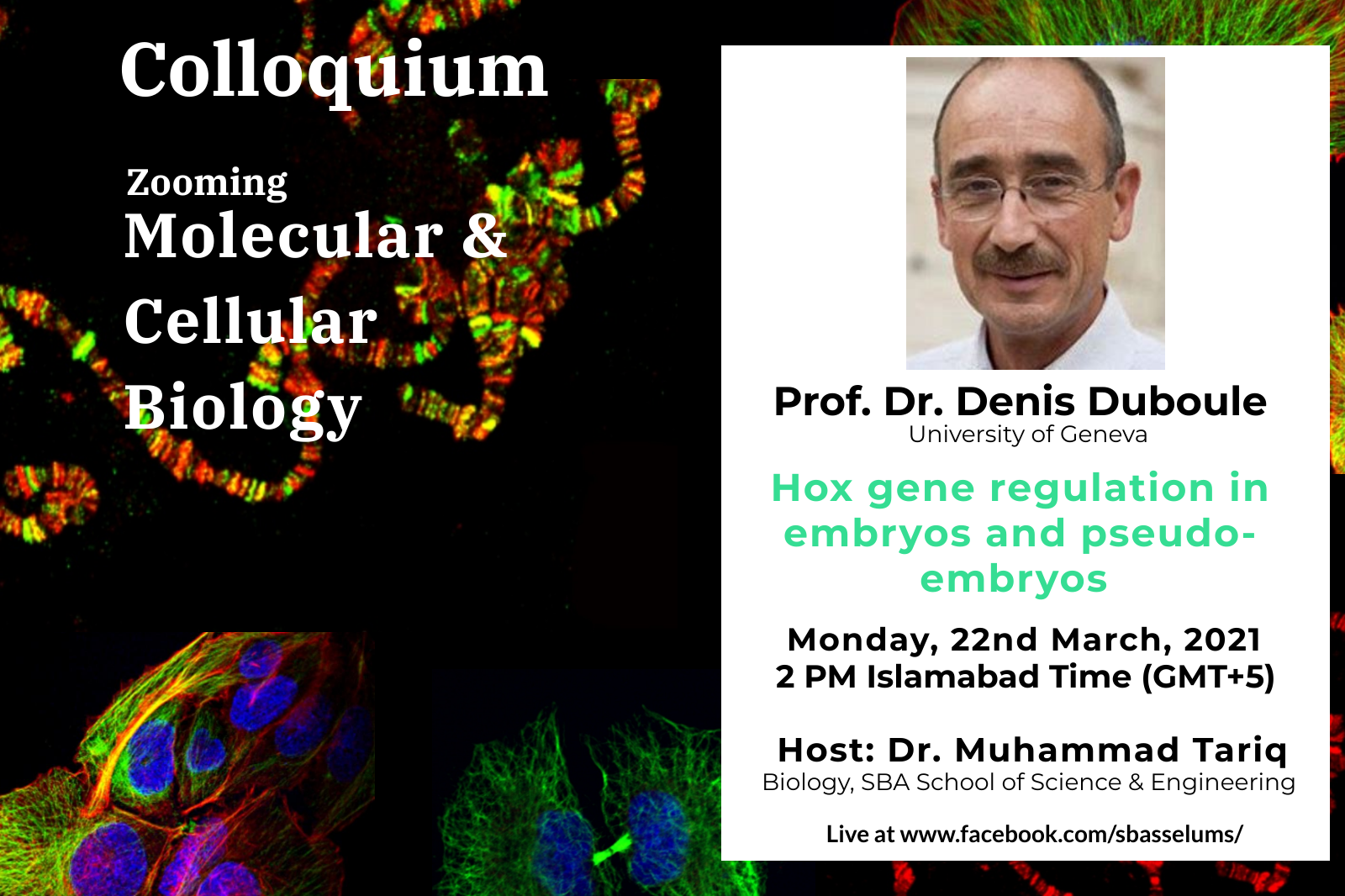
Hox Gene Regulation in Embryos and Pseudo-Embryos
Professor Dr. Denis Duboule talks about “Hox gene regulation in embryos and pseudo-embryos” in Zooming Molecular and Cellular Biology.
He is one of the leading developmental biologists of present times who has notably worked on vertebrate Hox genes, a group of genes involved in the formation of the body plan and of the limbs. His work has shed light on how our limbs and digits (fingers) develop and what abnormalities arise when key Hox genes are misregulated. He will share some of exciting unpublished data.
About the speaker:
Professor Denis Duboule obtained his PhD from the University of Geneva in 1984. He moved to the University of Strasbourg for his post doc with Professor Pierre Chambon. In 1988, he became a group leader at the European Molecular Biology Laboratory in Heidelberg, Germany. In 1992, he received tenure at the University of Geneva where he is currently Professor of Developmental Genetics and Genomics at the EPFL and at the Department of Genetics and Evolution of the University of Geneva. Since 2001, he is the Director of the Swiss National Research Center "Frontiers in Genetics" and since 2017, he is a Professor at the Collège de France. He has notably worked on Hox genes, a group of genes involved in the formation of the body plan and of the limbs. In 2012, Professor Duboule was elected as the National Academy of Sciences as a foreign member. He is also a fellow of the Royal Society. He has received several awards including Louis-Jeantet Prize for Medicine, Marcel Benoist Prize and A.O. Kovalevsky Medal (2013) from the St. Petersburg Society of Naturalists.

